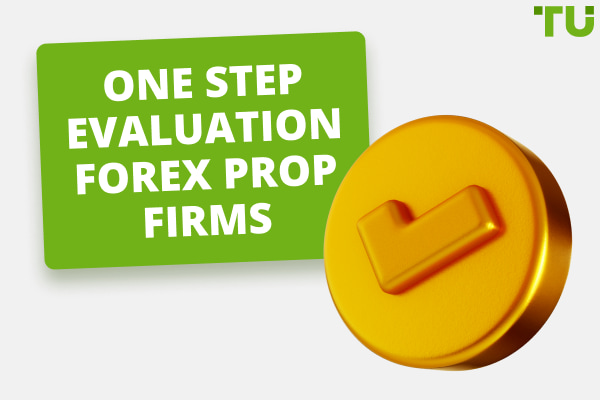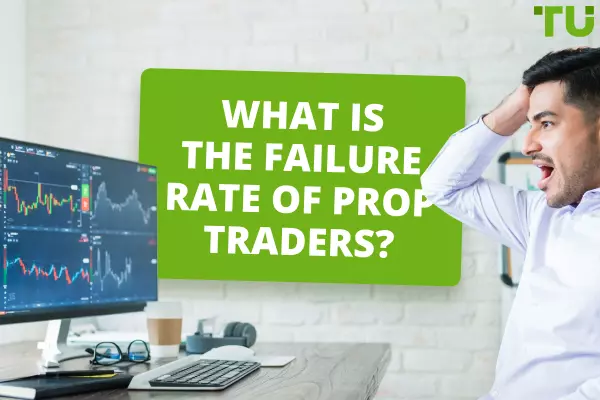Legal And Regulatory Considerations For Prop Trading
The main regulatory and legal considerations for prop trading firms are:
-
Registering with the relevant financial authorities
-
Maintaining minimum levels of capital
-
Managing risk to ensure safe trading practices
-
Adhering to anti-money laundering and know-your-customer schemes
-
Reporting trades to trade authorities
There are so many regulatory and legal considerations that financial institutions have to consider that understanding how to operate within the law can be incredibly complicated. The regulations surrounding prop trading firms can be particularly complex depending on how they are engaging with financial markets. Many prop firms are not subject to the same regulations as others. In this article, we’ll take a surface-level look at the regulations that prop trading firms are required to adhere to and examine how the different policies and laws set by regulatory bodies apply to prop trading firms.
Fund your account with Topstep!Legal and regulatory considerations for prop trading
Proprietary trading , colloquially referred to as prop trading, is defined as the trading conducted by financial institutions or commercial banks for direct profit, rather than to generate profit for investor clients. The organizations who engage in prop trading are called prop trading firms, and they employ dedicated traders, called prop traders, to manage assets, buying and selling them with the aim of producing consistently positive returns. Prop traders and prop trading firms are required to comply with financial laws and regulations in order to maintain the integrity of their trading practices. The most prominent of those legal and regulatory considerations are:
-
Registration;
-
Minimum capital requirements;
-
Risk management;
-
AML and KYC requirements;
-
Trade reporting.
Let’s look at each of these in more detail.
Registration
Proprietary trading firms need to register with relevant regulatory authorities. The registration process typically involves submitting detailed information about the firm's structure, business activities, and employed traders.
The need for registration or licensing depends on the regulatory jurisdiction under which the prop trading firm operates. Different countries and regions have differing requirements, and it's crucial to understand and comply with the specific rules of each jurisdiction. For example, prop trading firms in the UK do not need to be regulated. In the USA however, prop trading firms that trade securities must register with FINRA and comply with its rules and regulations. Many prop trading firms manage to skirt this regulation through legal loopholes however (more on this later).
Within many jurisdictions, individual traders involved in proprietary trading may need to obtain specific licenses. These licenses often require passing qualifying exams and demonstrating a sufficient understanding of financial markets and regulations.
If a prop trading firm is looking to register their company, they must do so with the relevant authorities. They must first select a legal structure for their business, such as an LLC or corporation. They may also then need to obtain licenses and permits.
Minimum capital requirements
Prop trading firms often must maintain a minimum level of net capital, which is the difference between their assets and liabilities. The purpose of imposing minimum capital requirements on prop trading firms is to safeguard the financial stability of the firm and protect the interests of market participants.
Minimum capital requirements act as a financial cushion, ensuring that prop trading firms have adequate resources to cover potential losses. This protection is crucial, especially when firms are engaged in proprietary trading activities and handling client funds.
However, it’s worth noting that as most prop trading firms don’t manage any client’s funds and trade directly using their own funds, they don’t have to comply with these regulations. In fact, anyone with enough capital can start their own prop trading firm.
Risk management
Prop trading firms implement risk management procedures to follow regulatory rules and ensure safe trading practices. For example, a firm may set limits on the amount of money a trader can invest in a single trade to control potential losses. They may also employ automated systems that monitor trades in real-time, triggering alerts or halting activities if predetermined risk thresholds are breached. Additionally, these firms regularly assess the overall risk exposure of their portfolios, using various tools to analyze market trends and potential impacts on their financial health. By adhering to such risk management practices, prop trading firms aim to operate responsibly, safeguard their interests, and comply with regulatory requirements.
Anti-money laundering (AML) and know-your-customer (KYC) requirements
Anti-Money Laundering (AML) refers to laws, regulations and policies designed to stop criminals disguising illegally obtained funds as a legitimate form of income. Businesses in the financial sector are usually required to register with an AML scheme.
Know Your Customer (KYC) procedures involve collecting and verifying information about clients to ensure they are who they claim to be. This includes obtaining identification documents, proof of address, and other relevant details, to prevent fraudulent and illegal activity.
Although prop trading firms are usually not trading on behalf of customers and clients, they are still subject to AML and KYC laws. Prop trading firms themselves need to comply with AML and KYC regulations, ensuring the integrity of the financial system. This involves having procedures in place to prevent the firm from being used for money laundering activities. Regulatory bodies may require prop trading firms to establish reporting mechanisms to detect and prevent money laundering. Even if customer involvement is limited, regulations require adherence to these controls.
While the primary focus is on the firm's own funds, prop trading firms often engage with external parties, including other financial institutions and counterparties. In these interactions, they are required to conduct due diligence to ensure that they are not inadvertently involved in money laundering schemes.
Trade reporting
Trade reporting refers to the regulatory requirement for market makers to publicly report all transactions immediately after they have been completed. It involves the submission of details of the transactions to regulatory authorities. This reporting requirement is designed to improve transparency for relevant authorities and the public, promote financial stability, and support the detection of market abuse.
Prop trading firms are often required to comply with trade reporting regulations. Trade reporting requirements vary depending on the assets being traded, such as equities, derivatives, and other financial instruments.
Additionally, different types of reports must be filed. Transaction reports provide details about individual transactions executed by the prop firm. Counterparty reports identify and provide details about the entities or individuals with whom the firm conducted trades. Position reports detail the current positions held by the prop trading firm in various financial instruments. Risk exposure reports assess and report the level of risk exposure associated with the firm's trading activities.
It's worth noting that the specific types of reports and their contents may vary based on regulatory requirements in different jurisdictions and the nature of the assets traded by the prop trading firm. Also worth noting is that prop trading firms that operate outside of regulation due to loopholes in the Security Exchanges Act are not required to report trades. The SEC is attempting to introduce new regulations to cover more prop trading firms as of 2023. Let’s look at some of these regulatory loopholes in more detail.
Regulatory Exceptions
The regulatory requirements for prop trading firms are quite complex. By definition, prop trading firms are only trading using their own money, which puts them outside of securities requirements by regulators in most cases. However, if a prop trading firm is also acting as a broker-dealer, then they must register with the Securities and Exchange Commission (SEC), and with a registered national securities association such as the Financial Industry Regulatory Authority (FINRA) in the USA.
Prop trading firms who provide demonstrably successful traders with funded accounts can skirt regulations. Firms can also provide their traders with demo accounts, so they are not subject to securities regulations. Additionally, Section 240.15b9-1 of the 1934 Securities Exchange Act allows firms acting as broker-dealers to remain unregulated as long as they carry no customer accounts and become members of a national securities exchange. Many firms take advantage of this loophole, trading directly with their own money and registering with any of the 20+ national securities exchanges such as the NYSE, so that they don’t fall under regulation.
A new type of prop trading firm has emerged in recent years that offers independent traders funded accounts rather than hiring them directly, allowing them to escape regulation. Many list themselves as financial education businesses. Some even provide their traders with “demo accounts”, but then connect their “virtual funds” to the firm’s capital and avoid SEC regulation. Overall, prop trading firms are generally able to get around securities regulations in the USA, though as of August 2023 the SEC is attempting to expand its rules to cover previously exempt proprietary trading firms.
Best Prop trading firms
Additional legal and regulatory considerations for prop trading
There are further legal and regulatory considerations that proprietary trading firms must take into account:
-
Conflicts of interest. Prop trading firms may engage in proprietary trading alongside other financial activities. Conflicts of interest can arise when the firm's trading activities conflict with the best interests of their clients in their other activities. For example, if a prop trader invested in a security for the firm, before investing in the same security on behalf of a client, this would constitute a conflict of interest. Prop trading firms must establish robust internal controls and disclosure mechanisms to identify, manage, and mitigate conflicts of interest.
-
Market manipulation. Market manipulation refers to the intentional attempt to interfere with the supply or demand of a security, affecting its price and misleading other market participants. Prop trading firms are obligated to refrain from engaging in any form of market manipulation. Implementing surveillance systems and adopting ethical trading practices helps to prevent manipulation. In 2022, Nova Scotia based trading firm Maritra Trading Services Inc was required to hire a new regulatory consultant after its traders were caught engaging in manipulative trading. Collaborating with regulatory authorities to report and address suspicious activities is essential.
-
Insider trading. Insider trading is an illegal practice that involves trading based on access to material, non-public information. Prop trading firms often have access to sensitive market information and so must prevent any misuse of such information for personal gain. To do this, they can enforce strict policies and procedures against insider trading, such as maintaining information barriers within the firm, educating employees, and monitoring trading activities to detect potential breaches.
Conclusion
Overall, there are many legal and regulatory considerations that prop trading firms must adhere to – though their obligation to comply is largely based on the type of prop firm they are and the type of prop trading they engage in. If a prop trading firm is acting as a broker-dealer, they are subject to heavier regulation and must register with the financial authorities of the country they operate within.
Although most prop trading firms are able to circumvent regulation due to various legal loopholes, it seems that in 2023 financial regulatory bodies such as the SEC are expanding laws to cover the growing number of prop trading firms. It is vital for prop trading firms to stay up to date with current laws to avoid criminal prosecution.
FAQs
How are prop trading firms regulated?
This depends on the type of prop trading firm. If they employ traders directly or act as broker-dealers, they may be subject to regulation by FINRA and the SEC. However, if they are allocating funded or demo accounts to independent traders, they are able to circumvent most financial regulations.
Is trading with a prop firm legal?
Yes, prop trading firms operate within the law, though many are not subject to the same stringent regulations as other financial bodies, making them higher risk.
Do prop traders need a license?
Prop traders working directly for prop trading firms generally require a license. Traders using funded trading accounts do not usually need a license however.
Are prop trading firms a scam?
No, prop trading is a legitimate form of trading, though there are more legitimate firms and some more fraudulent ones. For example, My Forex Funds is a forex prop trading firm that in 2024 was accused of operating a Ponzi scheme by paying out profits from failed prop trading challenges and collecting fees from traders.
Glossary for novice traders
-
1
Broker
A broker is a legal entity or individual that performs as an intermediary when making trades in the financial markets. Private investors cannot trade without a broker, since only brokers can execute trades on the exchanges.
-
2
Trading
Trading involves the act of buying and selling financial assets like stocks, currencies, or commodities with the intention of profiting from market price fluctuations. Traders employ various strategies, analysis techniques, and risk management practices to make informed decisions and optimize their chances of success in the financial markets.
-
3
Prop trading
Proprietary trading (prop trading) is a financial trading strategy where a financial firm or institution uses its own capital to trade in various financial markets, such as stocks, bonds, commodities, or derivatives, with the aim of generating profits for the company itself. Prop traders typically do not trade on behalf of clients but instead trade with the firm's money, taking on the associated risks and rewards.
-
4
Leverage
Forex leverage is a tool enabling traders to control larger positions with a relatively small amount of capital, amplifying potential profits and losses based on the chosen leverage ratio.
-
5
Risk Management
Risk management is a risk management model that involves controlling potential losses while maximizing profits. The main risk management tools are stop loss, take profit, calculation of position volume taking into account leverage and pip value.
Team that worked on the article
Jason Law is a freelance writer and journalist and a Traders Union website contributor. While his main areas of expertise are currently finance and investing, he’s also a generalist writer covering news, current events, and travel.
Jason’s experience includes being an editor for South24 News and writing for the Vietnam Times newspaper. He is also an avid investor and an active stock and cryptocurrency trader with several years of experience.
Dr. BJ Johnson is a PhD in English Language and an editor with over 15 years of experience. He earned his degree in English Language in the U.S and the UK. In 2020, Dr. Johnson joined the Traders Union team. Since then, he has created over 100 exclusive articles and edited over 300 articles of other authors.
Mirjan Hipolito is a journalist and news editor at Traders Union. She is an expert crypto writer with five years of experience in the financial markets. Her specialties are daily market news, price predictions, and Initial Coin Offerings (ICO).
















